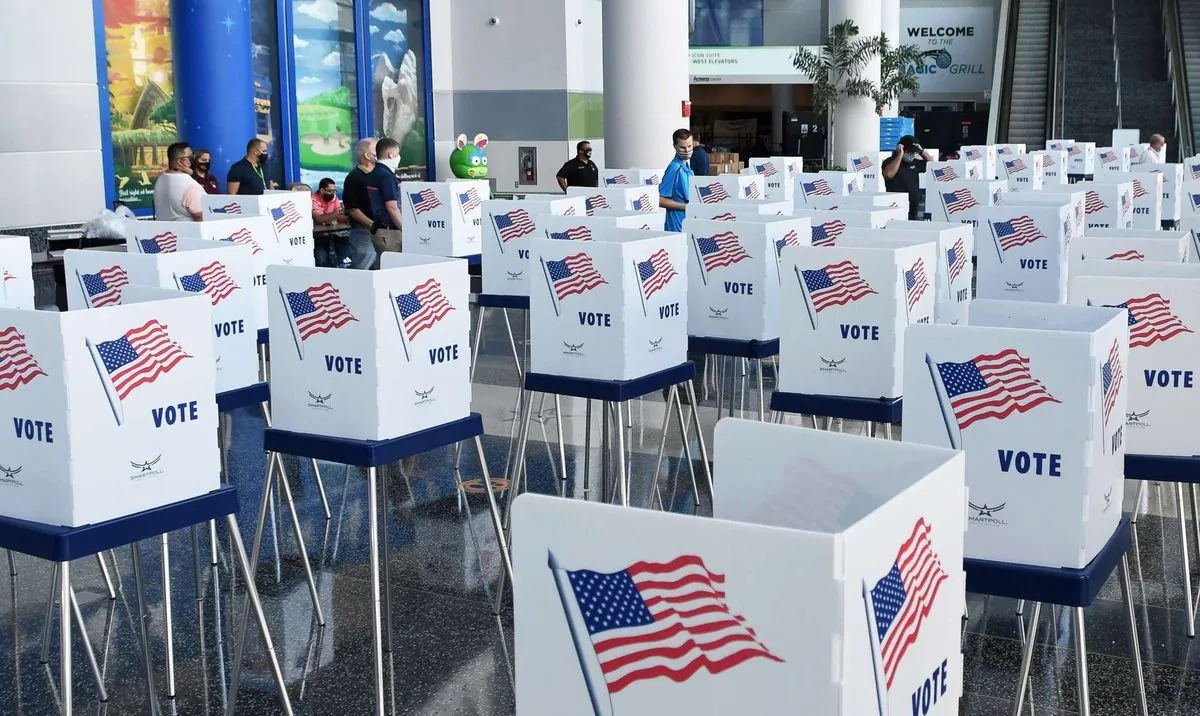Florida, known for its diverse landscapes and rich history, has experienced a significant shift in its political makeup. Recent data from county elections supervisors reveals that Republicans now outnumber Democrats by 1 million registered voters in the Sunshine State.
This dramatic change has occurred rapidly, transforming Florida's political landscape. In 2020, Democrats held a slight edge of about 97,000 registered voters. However, the situation has reversed, with 5.3 million active Republican voters compared to 4.3 million active Democratic voters as of August 2024. Additionally, 3.9 million voters are either unaffiliated or registered with minor parties.
The shift in voter registration has been attributed to various factors, including demographic changes and migration patterns. Between 2020 and 2021, the U.S. Census Bureau estimated that Florida gained an average of 667 new residents daily. However, the political affiliations of these newcomers were not specified.
Evan Power, the Florida Republican Party chair, celebrated this development, declaring the party as "the most successful in the nation." This voter registration advantage comes on the heels of Governor Ron DeSantis's landslide reelection victory in 2022, where he won by a 19-point margin.
For the Florida Democratic Party, this shift presents significant challenges. The party has already suffered substantial losses in recent elections, including in traditionally blue counties and local races. However, Democrats remain hopeful about Florida's potential to regain its swing state status in future elections.
Nikki Fried, chair of the Florida Democratic Party, downplayed the significance of the voter registration gap, calling it "empty rhetoric." She pointed to recent Democratic victories, such as the Jacksonville mayoral race and a state house district flip, as evidence of growing dissatisfaction with the Republican Party.
"While Florida Republicans have spent years dismantling voting rights to inflate their numbers and take victory laps on the voter registration gap, it hasn't stopped Florida Democrats from winning elections like the Jacksonville Mayor's race or flipping State House District 35, both wins that demonstrated a growing lack of enthusiasm for the Republican Party and an increasing number of Independent voters rejecting extremism in Florida."
Fried also highlighted a surge in volunteer sign-ups following Vice President Kamala Harris's entry into the presidential race, describing it as a "massive momentum shift."
The political landscape in Florida continues to evolve, with upcoming constitutional amendments on abortion rights and marijuana legalization potentially influencing future elections. These issues, which generally align with Democratic priorities, could play a crucial role in shaping the state's political future.
Florida's unique characteristics extend beyond its political dynamics. As the third most populous state in the U.S., it boasts the longest coastline in the contiguous United States, stretching about 1,350 miles. The state is also home to the Everglades National Park, the largest tropical wilderness in the country and the third-largest national park in the lower 48 states.
Florida's economy is diverse, with tourism and agriculture playing significant roles. The state produces about 70% of the United States' citrus fruits and is home to more golf courses than any other state, with over 1,250 courses. Additionally, Florida's lack of personal income tax, which is enshrined in its constitution, has been an attractive feature for many residents and businesses.
As Florida's political landscape continues to shift, its rich history and unique features remain constant. From being the home of the oldest European-established city in the United States, St. Augustine, founded in 1565, to hosting the Kennedy Space Center, Florida continues to play a vital role in shaping the nation's future while preserving its diverse natural and cultural heritage.
